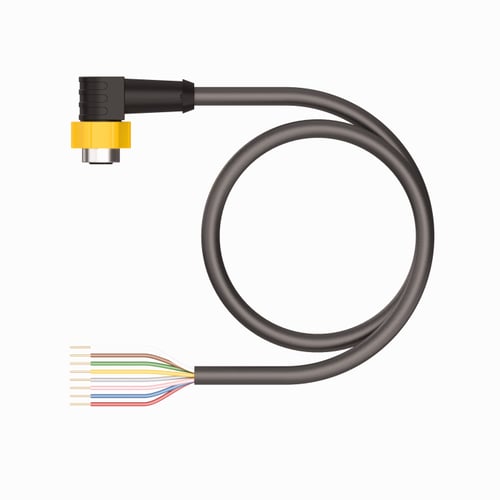Understanding M12 Connectors: A Comprehensive Guide

Table of Contents
In the vast realm of industrial connectivity solutions, M12 connectors stand out as a ubiquitous and reliable option. Their compact design, robustness, and versatility make them a preferred choice for various applications. In this post, we delve into the intricacies of M12 connectors, highlighting their significance and typical uses.
What Are M12 Connectors?
M12 connectors are circular connectors with a 12mm locking thread diameter, hence the name. They are widely recognized for their compact size, high durability, and resistance to environmental factors such as moisture, dust, and vibrations. Originally developed for sensor/actuator connectivity in automation technology, their applications have since expanded across numerous industries, including automotive, manufacturing, and process automation.
Types and Uses of M12 Connectors
M12 connectors come in various codes, each tailored for specific applications. Here’s a table listing some of the common M12 connector codes and their typical uses:

Advantages of M12 Connectors
- Robustness: Built to withstand harsh industrial environments, they offer high resistance to shock, vibration, and temperature variations.
- Compact Design: Their small footprint makes them ideal for applications with space constraints.
- Easy Installation: The screw-locking mechanism ensures a secure connection, minimizing the risk of disconnection due to external factors.
- Versatility: With various codes catering to different needs, M12 connectors can address a wide range of connectivity requirements.

Conclusion
M12 connectors have undoubtedly revolutionized industrial connectivity, offering a blend
of durability, versatility, and performance.
Whether you’re integrating sensors in an automated assembly line or setting up a robust fieldbus system, understanding the nuances of M12 connectors can streamline your connectivity solutions. While there may be a breadth of M12 codes to choose from, when selecting a cordset the devices you are connecting will likely determine the M12 code you will need.
For specific applications or requirements, always consult with industry experts or refer to manufacturer guidelines to ensure optimal performance and compatibility.
If you're interested in learning more about purchasing options or have any questions about how to acquire M12 connectors, we've got you covered!
Simply fill out the form below, and we'll be happy to assist you. Feel free to leave any additional notes or requirements, and our industry experts will ensure optimal performance and compatibility for your connectivity solutions.




